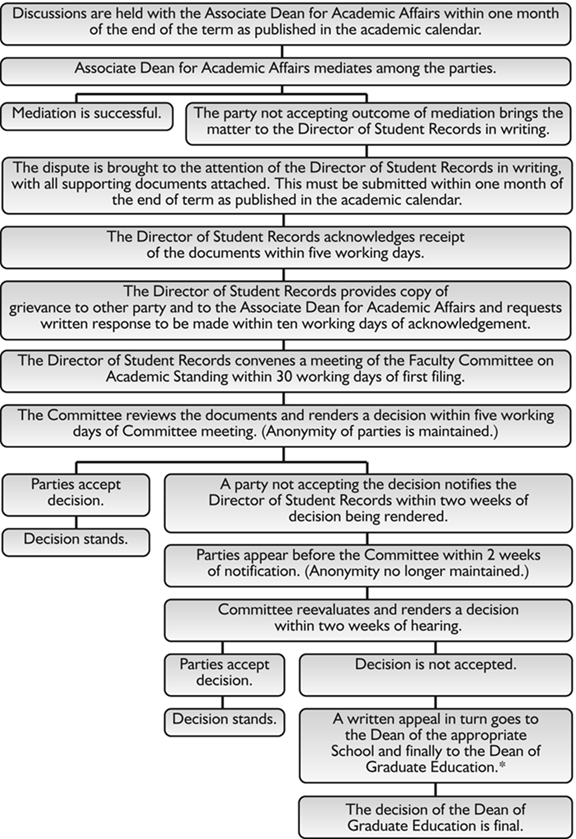Grade Appeal Process
- Before formally bringing an appeal, the student is asked to:
- Discuss the matter fully with the instructor to understand the reason for the grade given
- Believe firmly that the grade is not an accurate measure of performance and that he/she has been wronged.
- Write a letter to the Dean stating the reasons why a grade change should be considered.
- Meet with the Dean who determines, if the complaint is valid, to initiate the appeals procedure.
- The Dean identifies faculty members (three in the case of project appeals; two faculty members otherwise) who are familiar with the work of the course but who were not involved in teaching the student for the course in question.
- For project appeals, the Graduate Program Director arranges a session in which:
- The student presents his/her project.
- The project advisor presents the syllabus, objectives of the course and basis for the grade (the three reviewers and the Dean are present).
- The student presents (10-20 minutes) his/her understanding of the project objectives and how he/she believes the work has met the objectives. (the three reviewers and the Dean are present).
- After the respective presentations, the reviewers make a recommendation to the Dean. They may recommend any grade, including one which is lower than that originally given.
- For non-project appeals, the Dean collects student work from the course and shares it, along with the instructor’s stated objectives, with the faculty reviewers and asks for a recommendation.
- The Dean considers the recommendation and makes a decision. If it is to change the grade, the course instructor is asked to make the change. If the instructor refuses to do so, the Dean will make the change.
- If not satisfied with the Dean’s Decision, the student may continue the appeal with the Faculty Board on appeals as described in the Rensselaer Handbook of Student Rights and Responsibilities.
Grievance and Hearing Procedure
Given the attributes of Rensselaer's Education for Working Professionals students, complaints, problems, and disputes can generally be resolved through individual discussions between those involved. When such negotiations prove unsatisfactory, a student or instructor may file a grievance.
A fair and timely resolution of grievances is important to both students and faculty. Therefore, the following procedure and approximate timetable have been established:
